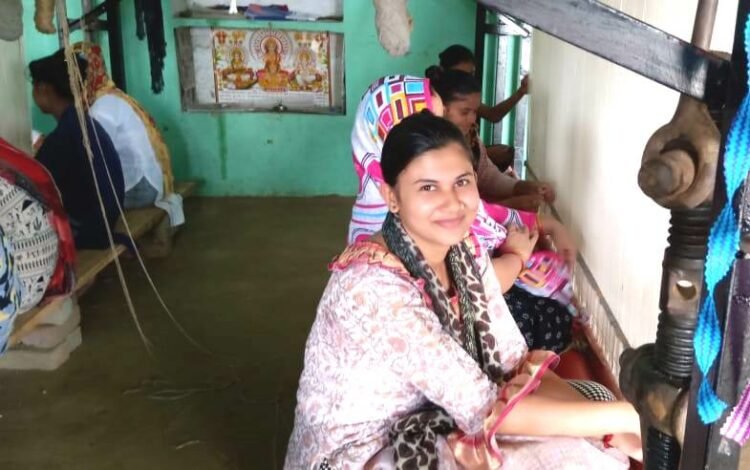As India heads towards a 5 trillion economy, it becomes imperative to include the rural India especially the left half of rural population, the rural Indian women, in the development process. India’s workforce has fewer women than it had six years ago: no more than 18% women in rural areas were employed in 2011-12. Although recent development in the rural setup has made women more aspirational than before, yet, there are not enough formal sector jobs available in rural areas.
MGNREGS, a labour demand-driven programme, is limited to providing only 100 days of paid labour on public works projects per year. The few paid, formal jobs available, besides MGNREGS, tend to go to men and women with degrees, leaving women educated till the secondary school level in limbo. This lack of formal jobs, coupled with shrinking availability of agricultural work, has led to declining numbers of women in the rural workforce. India, the world’s fastest-growing major economy, could do a lot better if only it treated & utilized its women better.
Taking this thought in mind and papers, In July 2019, AROH Foundation, a leading national level NGO, implementing Holistic Rural Development Project with the aid of HDFC Bank in Budaun District for past many years, in collaboration with Indian carpet manufacturer, Jaipur Rugs with a mission to empower maximum underprivileged women out of 12000 women living in rural areas in project villages of Budaun by providing sustainable livelihoods.
For this AROH put forward an initiative for skilling these marginalized women in hand knitted carpet manufacturing and link them with sustainable livelihoods opportunities and also simultaneously reviving the age old craft of carpet making from Budaun district.
Explaining the idea behind this aspiring initiative, Dr Neelam Gupta, President AROH Foundation says, “The carpet is a living symbol of our culture. Did you know that 95% of the world’s hand-woven fabric comes from India? Or that the handloom weaving sector is one of the largest economic sectors in India after agriculture. The Carpet Industry in Budaun which dates back from Mughal period had gained prominence due to unique craftsmanship of products. But the irony was, there were around 130 women, desperately to become Aatmnirbhar, looking for options and no one was considering the goldmine hidden within the village, which was their expertise in making these carpets.”
“We, at AROH emphasize more on using pre-existing resources and turn them into opportunities. We did the same in Budaun. We had our manpower there; we engaged Jaipur rugs for training by experts and revived the already existing USP of the geography. They are now earning good profits, as we have removed middlemen from the system, who were squeezing maximum profits out of their hard work. They have their own SHG now and are linked for loans too. Now they can sell the product directly, earn better profits and have been rolled out to be contributors in economy. That’s what we say is sustainable empowerment.”, AROH Foundation President said.
“Kaam to pehle bhi karte the, par aise aamdani se khushi milti hai! (we have been making carpets for long, but the money it is giving now, is overhwlmning)” says Savitri Devi, 35 years old weaver trained by AROH Foundation in village Binavar. She further says, “even during covid lockdown, I could sustain decently because of the savings from my earnings. They transfer my earnings directly into my account, and so its safe from my drunkard husband or in laws. I shall use it for my children’s education.” AROH Foundation said.
The story of Savitri is renarated in almost every household of the carpet SHG. The women are confident and secured. The are ambitious too. They want to go out and participate in national and international fairs and talk about their products.
There is an urgent need for economic reconstruction in the post-lockdown period. The village SHGs has the potential to facilitate and boost self-reliant economy within a village. They also provide a safety net to improve resilience during a critical time of need like Covid. Our SHGs are first and affirmative example of how AatmNirbhar Bharat is possible, profitable and promising, the NGO said.







